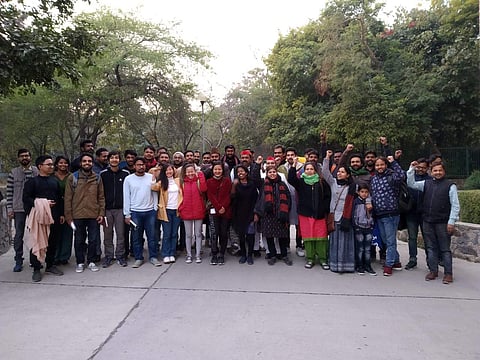

It is no news that the farmers and the agriculture sector of the country have been in turmoil. Farmers had been raising their voices against the government and the policies for a while now. But last month, when thousands of them, from every nook and corner of the country, decided to join their hands and march in the capital city, they were able to gather much larger attention from the media and the government towards their issues.
That's not just it. The march also served as a source of inspiration for the other sectors that have been facing problems. For instance, look at the Young India National Coordination Committee. A newly formed collective of more than 50 student and youth groups and movements in the country, the members of this collective are now planning to march on the streets of Delhi on February 7.
The collective's pilot meeting was held on December 27 at the Jawaharlal Nehru University, where the students have put forward their demands to the government. This varies from, filling in the vacant government job positions, an increment in the number of jobs, ending corruption, expenditure of at least 10 per cent budget on education, ending gender discriminatory rules, ending saffronisation and fulfilling mandated reservations, without any discrimination.
The collective has members from the students union of premier institutes and universities in the country like FTII, IIT Madras, JNU, Aligarh Muslim University and Banaras Hindu University. It has also brought students from various political backgrounds under the same umbrella. "We have invited all student organisations and unions in the country, except the ABVP," says N Sai Balaji, JNU Students Union President.
"We've been facing a lot of problems here in our university, especially fund cut," says Maskoor Ahmed Usmani, the former Aligarh Muslim Universty Students' Union President. "The university grant hasn't been updated since 2014. If this continues, where is the scope for better research?" he questions. He hopefully adds that the movement will also end the saffronisation in the university that has been forcing the students to not raise their voice against injustice over years.
